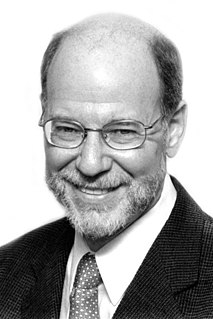A Quote by Esther Hicks
The reason that you call it 'grief' is because you've been programmed to believe that you should feel bad about death.
Related Quotes
Grief causes you to leave yourself. You step outside your narrow little pelt. And you can’t feel grief unless you’ve had love before it - grief is the final outcome of love, because it’s love lost. […] It’s the cycle of love completed: to love, to lose, to feel grief, to leave, and then to love again. Grief is the awareness that you will have to be alone, and there is nothing beyond that because being alone is the ultimate final destiny of each individual living creature. That’s what death is, the great loneliness.
The Savage interrupted him. "But isn't it natural to feel there's a God?"
"You might as well ask if it's natural to do up one's trousers with zippers," said the Controller sarcastically. "You remind me of another of those old fellows called Bradley. He defined philosophy as the finding of bad reason for what one believes by instinct. As if one believed anything by instinct! One believes things because one has been conditioned to believe them. Finding bad reasons for what one believes for other bad reasons – that's philosophy. People believe in God because they've been conditioned to."
Believing isn't thinking, but we've been programmed to believe that believing is thinking. To use our intelligence to think means we're keeping the energy active, we're thinking, we're really using the power of our intelligence in a thinking way. But when we've been programmed to believe, we're no longer thinking, because energy flows.
The New York Times is filled with Ivy League graduates and so is the Washington Post. I mean, it's all the same club. They may be Ivy League educated, but they're not smart. Their minds are closed. They actually are mind-numbed robots. They have been programmed all their lives. They're not even thinkers. These are people who have been programmed to believe what they believe. They are committed believers, not thinkers.
One of the most common words in the invalidating, self-blaming stories we believe about ourselves or our situations is the word "should." The psychologist Albert Ellis has coined the phrase "Stop shoulding on yourself." When you tell yourself that you should feel or be another way, you are likely to feel bad about yourself. As an alternative, try telling yourself that it is okay to feel or be the way you are, even though you have some idea that you should feel or be different.
You cannot die of grief, though it feels as if you can. A heart does not actually break, though sometimes your chest aches as if it is breaking. Grief dims with time. It is the way of things. There comes a day when you smile again, and you feel like a traitor. How dare I feel happy. How dare I be glad in a world where my father is no more. And then you cry fresh tears, because you do not miss him as much as you once did, and giving up your grief is another kind of death.
For years, I have been stalked by a bad reputation. Actually, I have been pursued by people who have regarded me as the 'Death and Dying' Lady. They believe that having spent more than three decades in research into death and life after death qualifies me as an expert on the subject. I think they miss the point.


































